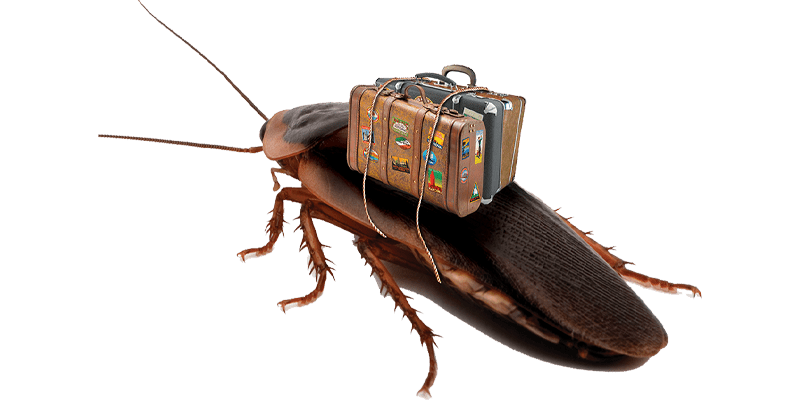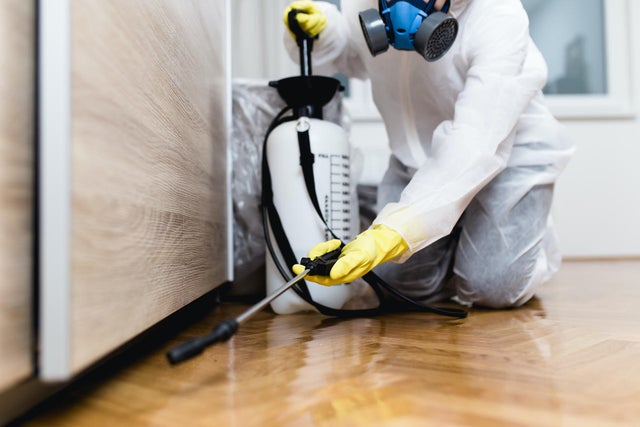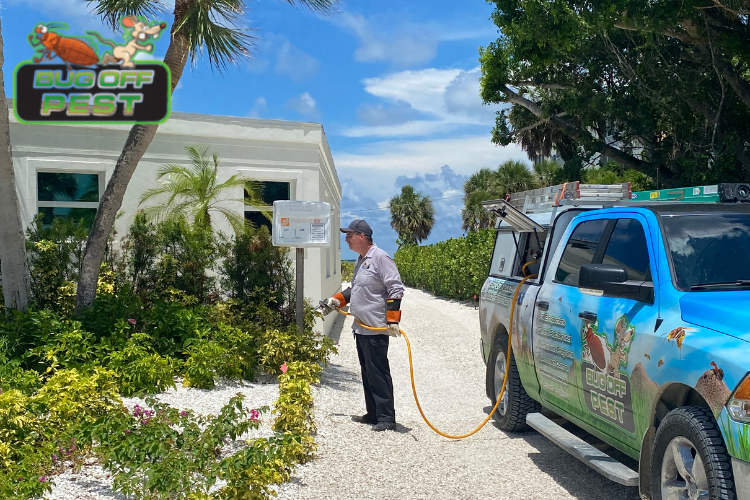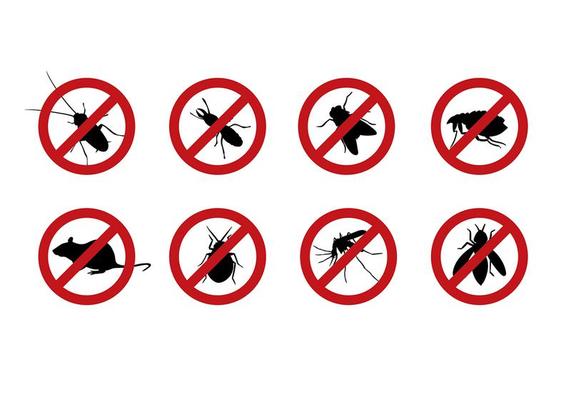Why Pest Control in Charlotte County Is Essential for Your House’s Health
Reveal the Relevance of Parasite Control in Preserving a Healthy Environment and Therapy Methods

The Duty of Bugs in Ecosystems
Parasites, typically seen solely as annoyances, play a multifaceted duty in communities that is essential for preserving eco-friendly balance. They add considerably to numerous environmental procedures, including pollination, nutrition biking, and insect control. For circumstances, numerous insect varieties, such as butterflies and bees, are essential pollinators for a large array of plants, which in turn sustains biodiversity and food manufacturing.
Additionally, bugs act as prey for various killers, developing a vital web link in food internet. This connection guarantees the survival of numerous varieties and helps regulate populations within ecological communities (Termite treatment Port Charlotte). Decomposer bugs, such as particular beetles and fungis, are instrumental in breaking down organic matter, thus enriching soil and helping with nutrition recycling.
On the other hand, while bugs can be valuable, their overpopulation or intrusion right into non-native settings might interfere with these eco-friendly features. This intricacy emphasizes the relevance of recognizing bug characteristics, as efficient insect administration methods need to think about both their environmental functions and potential impacts on human tasks. Stabilizing pest existence while lessening damage is important for preserving the honesty of ecological communities and making certain farming productivity.
Health Threats Connected With Bugs
The presence of parasites in different atmospheres extends past their ecological functions, as they additionally position substantial health and wellness dangers to animals and people. Numerous parasites, including parasites, rats, and insects, are carriers of conditions that can have severe health ramifications. Rats are known to transfer hantavirus and leptospirosis, both of which can lead to extreme respiratory and kidney issues, specifically.
Pests such as mosquitoes and ticks are infamous for spreading vector-borne illness like malaria, dengue fever, and Lyme disease. These ailments can result in high morbidity and death prices, particularly in prone populations. Furthermore, parasites like cockroaches and vermins can aggravate allergies and asthma, contributing to respiratory system problems in people, specifically those with pre-existing conditions.
In addition, the presence of parasites can result in emotional tension and pain, influencing general wellness. Contamination of food and surface areas by pest droppings and continues to be can result in foodborne ailments, highlighting the significance of preserving hygienic problems. As a result, recognizing the wellness risks related to bugs is critical in recognizing the necessity of effective pest management strategies to safeguard human and animal health and wellness.

Benefits of Reliable Insect Control
Effective bug control is essential for keeping a secure and healthy and balanced setting, as it continually minimizes the many dangers associated with pest problems. One of the key benefits of effective pest monitoring is the decrease of health hazards.
In addition, efficient insect control safeguards home and structures from damages. Numerous pests, like termites and woodworker ants, can trigger comprehensive blog here architectural damage that may call for costly fixings. By proactively handling these businesses, invasions and homeowners can shield their investments.
An additional significant advantage is the renovation of overall lifestyle. A pest-free setting contributes to mental health and reduces anxiety linked with infestations. Reliable parasite control fosters a safer environment for kids and family pets, making certain that homes continue to be sanctuaries totally free from damaging chemicals and disease-causing organisms.
Typical Bug Control Methods

In the realm of parasite administration, different techniques are used to deal with infestations efficiently. These techniques can be generally categorized right into 3 main strategies: cultural, mechanical, and chemical controls.
Cultural control entails modifying techniques to minimize pest reproduction, establishment, and survival. This may consist of crop turning, proper hygiene, and habitat adjustment, which collectively develop an atmosphere much less favorable to pest spreading.
Mechanical control employs physical pest control agency techniques to remove pests (Termite treatment Port Charlotte). Methods such as catches, obstacles, and vacuum cleaners are commonly utilized to directly eliminate parasites from a location. This approach is especially efficient for handling rats and pests without using hazardous chemicals
Chemical control includes the application of chemicals to take care of parasites. These substances can be categorized into herbicides, fungicides, and pesticides, each targeting specific sorts of pests. It is essential to utilize these chemicals carefully, sticking to security standards and laws to decrease possible harm to non-target species and the environment.
Each pest control method has its advantages and restrictions, and typically, an integrated method integrating several techniques produces the most effective outcomes in preserving a pest-free atmosphere.
Sustainable Insect Management Practices
Lasting bug administration practices incorporate a variety of methods developed to minimize ecological effect while efficiently controlling parasite populations. These practices focus on making use of eco friendly methods over chemical pesticides, therefore minimizing the risk of injury to non-target species, consisting of helpful insects, wild animals, and people.
Integrated Parasite Administration (IPM) is a cornerstone of lasting practices, incorporating biological, social, mechanical, and chemical tactics to take care of pests. over here As an example, biological control entails introducing all-natural predators or bloodsuckers to subdue insect populaces. Social practices, such as crop turning and polyculture, disrupt pest life process and enhance environment resilience.
Mechanical techniques, such as catches or obstacles, can properly avoid bug access without chemical intervention. In addition, maintaining healthy and balanced ecosystems with appropriate dirt management, plant health and wellness, and biodiversity can normally minimize insect issues.
Education and learning and understanding are essential components, equipping people and areas to recognize pest risks early and carry out safety nets. Termite treatment Port Charlotte. By cultivating a holistic approach that balances pest control with ecological integrity, sustainable insect management practices not only safeguard structures and crops but also contribute to a healthier setting for future generations
Verdict

Comprehending the health and wellness dangers connected with bugs is critical in identifying the necessity of effective insect management strategies to safeguard human and animal health.
Effective parasite control is essential for keeping a secure and healthy environment, as it consistently minimizes the many dangers associated with parasite problems.Integrated Insect Management (IPM) is a keystone of lasting practices, combining organic, cultural, mechanical, and chemical methods to handle parasites. By recognizing the function of pests, identifying involved health dangers, and employing varied treatment strategies, a sustainable strategy to pest administration can be attained. Integrated Bug Management (IPM) highlights a holistic method that mitigates damage to advantageous microorganisms while efficiently managing pest populaces.